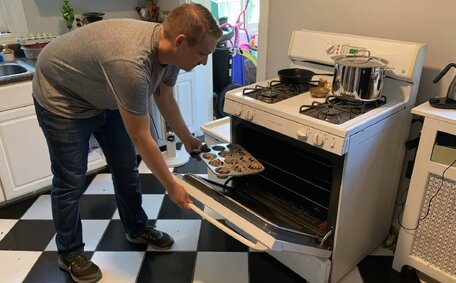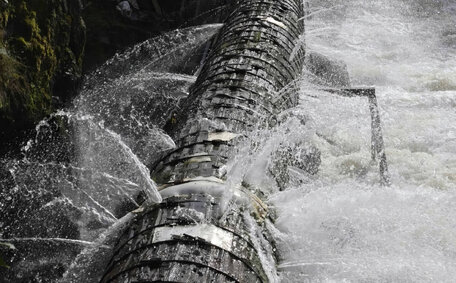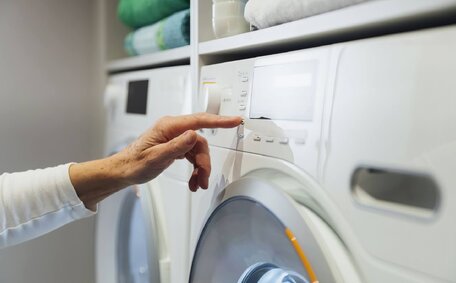Recognizing the Signs of a Blocked Drain
Early detection of warning signs can help avert complete blockages.
Be alert for gurgling sounds, slow draining water from your shower drain, foul odours, and water pooling in sinks or tubs when other fixtures are used.
Some early signs of a potential blockage include:
- Water draining slower than usual from your drain in sinks, tubs, or showers
- Gurgling noises coming from drains
- Unpleasant sewage odours around drains
- Toilets flushing sluggishly
- Water pooling around plumbing fixtures
If several drains are affected, early intervention with drain cleaning is key; however, for recurring blockages, a professional plumber is essential to prevent serious damage.
Causes of Blocked Drains
Blocked drains typically result from the following culprits:
- Accumulated hair and soap residue: As previously mentioned, the average person sheds 50-100 strands of hair per day. Accumulated hair, combined with soap scum, results in pipe blockages over time.
- Solidified fats, oils and grease (FOG): Cooking oils, such as vegetable oil or bacon fat, may solidify within pipe structures when rinsed down drains. Excessive buildup of FOG can restrict water flow and lead to blockages.
- Inappropriate items flushed: Objects like baby wipes, dental floss, paper towels and feminine hygiene products can snag inside pipes instead of breaking down, eventually blocking water flow.
- Tree roots: Overgrown tree roots near external sewer pipes may force their way inside, catching debris and causing blockages.
- Collapsed pipes: Old or damaged drain lines are prone to collapsing inward, severely restricting water flow.
Hair, FOG, and foreign objects can combine to block drainage. It’s crucial to maintain a clean plumbing system by using strainers and correct disposal to keep unsuitable items and buildups out of the drains.
Immediate Actions for Drain Blockages
When faced with a blocked drain, it’s important to recognise what to do, as prompt action can prevent flooding and more severe pipe damage. As soon as you notice gurgling sounds, foul odours, or slow drainage, try the following immediate troubleshooting steps:
Check and Remove Visible Clogs
Visually inspect your kitchen sink, along with tub/shower drains, and toilet bowls for obstructions. Hair and soap scum often accumulate near drain openings. Use gloves and tongs to carefully remove debris, disposing of it in the garbage rather than flushing it further down the drain, as certain items should never go down your pipes.
Plunge the Drain
Plunging can provide enough suction to dislodge minor clogs. Repeat for several minutes to clear the obstruction.
Fill the shower drain or tub with water to cover the drain. Position the plunger to create a tight seal, then pump vigorously to agitate the water and maximise suction to clear the blockage.
Pour Baking Soda and Vinegar
For more challenging clogs, use 1 cup of baking soda followed by 1 cup of hot vinegar down the drain; avoid boiling water to prevent damage.
The soda vinegar chemical reaction generates expanding foam and pressure that may dislodge the blockage without damaging pipes. Let it sit for 10-15 minutes. Finish by running hot water from the tap for a full 2 minutes.
Caution - Wear eye protection, since vinegar/baking soda mixtures can splatter unexpectedly.
You can also repeat this technique weekly to help prevent blocked future clogs. However, if multiple attempts to clear the blockage fail, avoid further makeshift drain cleaning methods and contact a professional plumber immediately to prevent overflowing and pipe damage.
Preventing Future Blockages
Preventative measures are crucial to avoiding future blocked drain blockages. Here are some methods to prevent blockages caused by common household waste:
Install Hair Catchers and Drain Strainers
Employ hair catchers or drain screens to capture hair, and sink strainers for food debris and solids. Clean these devices frequently.
Properly Dispose of Fats, Oils and Grease
Let fats, oils, and grease (FOG) cool and harden before disposal in the trash, not down the drain. Scrape cookware clean before washing. Utilise council services for FOG collection.
Use a FOGO bin (Food Organics, Garden Organics) to divert food waste from waterways, now offered by many councils.
Perform Preventative Maintenance
Periodically use a baking soda and vinegar mixture to keep drains clear. Ensure a plumber assesses and maintains main sewer lines yearly to prevent tree roots and debris from causing blockages.
Upgrade Old or Damaged Pipes
For homes with old metal or clay pipes, consider upgrading to durable PVC pipes that resist clogs and collapses, and opt for wider 4 to 6-inch drains with anti-blocking technology.
Proactive measures protect your plumbing from bursts, leaks, or floods, and keep appliances contaminant-free. Apply these simple, economical strategies for consistent drainage in your home.
Professional Drain Cleaning Services
If DIY solutions prove ineffective, professional plumbing services are your next step. Erskine Park Plumbing, with notable expertise since 2019, can handle tough clogs to restore unimpeded water flow in your property.
When to Call a Professional
Seek a licensed plumber for blocked drains in Sydney if experiencing any of these issues:
- Water overflowing from drains
- Foul sewage odours in multiple rooms
- Backed up water into sinks, tubs or other fixtures
- Stagnant water around cleanouts or exterior vents
- Multiple attempts at DIY drain cleaning have failed
Our Drain Cleaning Process
Our technicians perform a thorough pipe inspection to identify the clog’s cause and determine the best resolution, which might include:
- Hydro jetting - Powerful pressurised water to scour interiors and dislodge years of accumulated gunk.
- Snaking - Running an auger cable with a cutting tip through the line to break up debris.
- Pipe inspection - Sending a camera down the line to pinpoint troublesome areas.
We provide excavation and complete drain replacement for extensive tree root invasion, pipe repairs, or blocked sewer lines, to prevent recurring problems.
Count on Erskine Park Plumbing
Avoid letting a small clog develop into a major emergency. Rely on our Sydney-based plumbing proficiency to effectively clear your drains for steady water flow. Contact us now to book a service appointment.
Call - 1300 349 338
Email - [email protected]
Online - www.erskineparkplumbing.com.au






